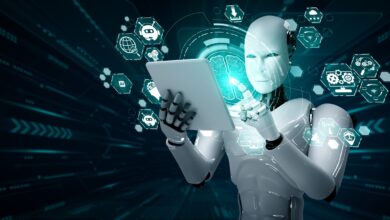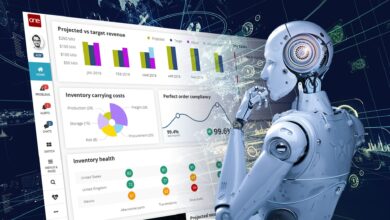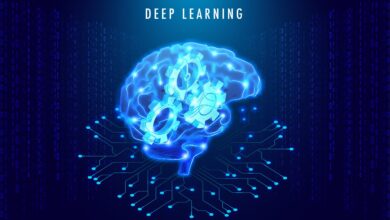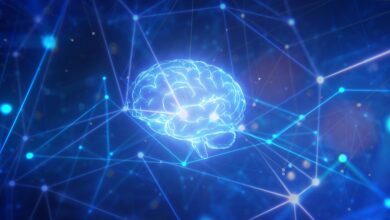AI in cybersecurity is a transformative force, revolutionizing our approach to digital defense. This article delves into its significance, offering a deep dive into its benefits, challenges, and prospects.
Understanding AI and Cybersecurity
-
Definition of AI
AI, or artificial intelligence, refers to machines or software that exhibit human-like intelligence. These systems can learn from experiences, adapt to new inputs, and perform tasks typically requiring human intelligence, like interpreting natural language or recognizing patterns.
-
Definition of Cybersecurity
On the other hand, cybersecurity is about keeping online dangers away from hardware, software, and data linked to the internet. The goal is to keep people from being able to view, use, share, disrupt, change, or destroy the data without permission.
How AI Enhances Cybersecurity
-
Automated Threat Detection
AI excels at identifying patterns and anomalies. By leveraging machine learning, AI systems can quickly identify threats or suspicious activities that humans might overlook. This automated threat detection saves time and increases efficiency.
-
Predictive Analytics
AI-driven predictive analytics provide a valuable tool for preemptive threat detection. By analyzing historical data, AI can predict potential attacks, giving security teams a heads-up to beef up their defenses.
-
Incident Response
AI can also aid in incident response. Upon detecting a threat, AI tools can take predefined actions to contain the threat and minimize damage.
-
User Behavior Analysis
Through machine learning, AI can learn typical user behavior patterns. If a user deviates from this ‘normal’ pattern, the system flags it as a potential security risk.
Examples of Artificial Intelligence in Cybersecurity
Several cybersecurity solutions currently leverage AI. For instance, Darktrace uses machine learning to detect and respond to threats in real-time, while IBM’s Watson for Cyber Security employs AI for threat intelligence.
Challenges of AI in Cybersecurity
-
Data Privacy
While AI can bolster cybersecurity, it also raises data privacy concerns. AI systems require vast data for training, potentially compromising user privacy.
-
Lack of Skilled Personnel
AI technology requires skilled personnel for proper implementation and maintenance. However, there is a global need for such experts.
-
Risk of False Positives
While adept at identifying threats, AI systems can also generate false positives, causing unnecessary alarm and potentially diverting resources from actual threats.
-
Overcoming the Challenges
To reap the benefits of AI in cybersecurity, we need robust privacy laws to protect user data, enhanced training programs to meet the skills demand, and continuous refining of AI algorithms to reduce false positives.
Future of AI in Cybersecurity
The future looks bright for AI in cybersecurity. As AI technology matures, AI-driven cybersecurity tools are anticipated to become more accurate, efficient, and indispensable.
Conclusion
In essence, AI offers a promising avenue for enhancing cybersecurity. Despite the challenges, with appropriate measures, we can harness AI’s potential to secure our digital landscapes.
FAQs for AI in Cybersecurity
How does AI enhance cybersecurity?
AI enhances cybersecurity through automated threat detection, predictive analytics, incident response, and user behavior analysis.
What are the challenges of AI in cybersecurity?
Concerns about data privacy, a shortage of competent employees, and potential false positives are among the issues.
How can these challenges be overcome?
The challenges can be overcome through robust privacy laws, enhanced training programs for personnel, and continuous refining of AI algorithms.
What is the future of AI in cybersecurity?
AI-powered cybersecurity tools are anticipated to become more precise, efficient, and indispensable as AI technology matures.








